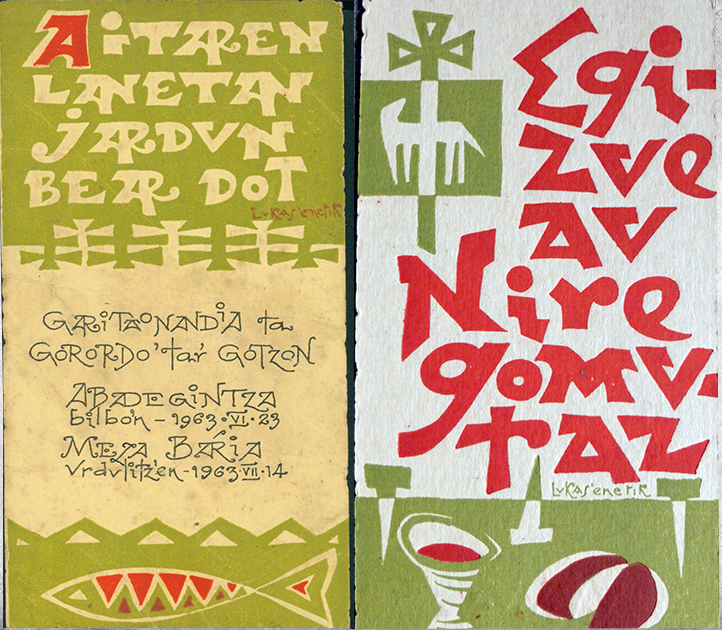Basque ethnography at a glance
Commitment is a pledge, a promise, a dedication, even an obligation. Without entering into value judgments, is fair to say that, in the old days, committing yourself sometimes meant staying committed forever. Now, however, there seems to be a growing disregard for the value of commitment, as far as its duration and content are concerned.
Marital commitment, for instance, used to be indefinite, until death parted the married couple. Today, unions are temporary by definition; in fact, couple, family and neighbourhood relationships are defined as ‘liquid’ bonds, for they are frail and vulnerable. The great Colombian writer Héctor Abad Faciolince maintains: “The great misfortune of marriage, of long love relationships, is the deterioration of desire”. That is to say, if desire fails, there is no sense in maintaining the commitment.
Something similar happens in other walks of life. Among others, commitments acquired by solemn religious vows, permanent in themselves, might not be honoured. And agreements or promises, either oral or written, are all too easily broken or interrupted.
Many young folks committed themselves to the civil war, and enlisted as gudaris to fight for their country. Even numerous foreign volunteers participated in favour of the II Republic. A similar situation is, I believe, currently unimaginable.
Our world moves too fast, and developments unfold at breakneck speed. And memories, when recalled, might be altered, or perhaps erased entirely. The point is that recent events age at an unprecedented pace. Forgetfulness is an atrocious evil, the past must guide our present and future, otherwise life will feel unstable and uncertain with the passage of time.
As children, we believe we are invulnerable, because our parents are always by our side to support us, defend us and resolve our doubts and contradictions. And when we are young, we believe we are immortal. But as the years go by, our convictions start to crumble, and we grow to be more sceptical. Then we become aware of what the title of the aforementioned author’s work, Forgotten we shall be, claims.
As Theodor Kallifatides states: “The age of immediacy has taken over. Eternity is no longer in fashion”.
Segundo Oar-Arteta – Labayru Fundazioa
Translated by Jaione Bilbao – Ethnography Department – Labayru Fundazioa



